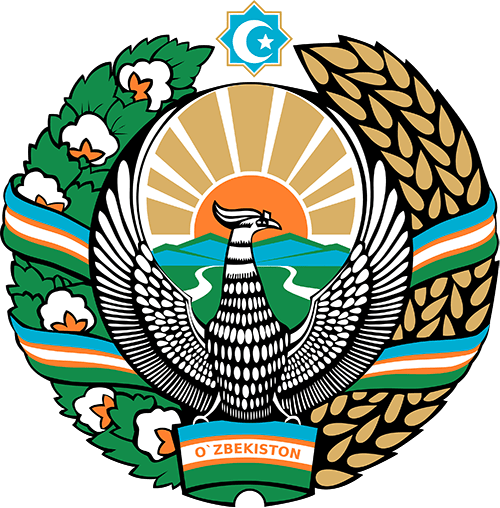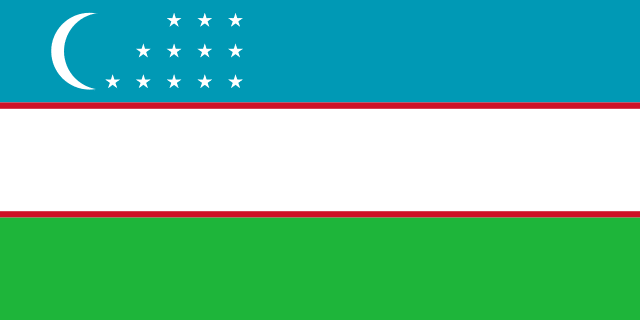TASHPMI ANNOUNCED ADMISSION FOR FOREIGN CITIZENS FOR THE 2023/2024 ACADEMIC YEAR
Tashkent Pediatric Medical Institute announces the start of admission for foreign citizens to study in bachelor’s, master’s and clinical residency in the 2023/2024 academic year.
In order to create convenience for foreign citizens applying to study at the Tashkent Pediatric Medical Institute in the 2023/2024 academic year, documents will be accepted online on the official website of the Institute.
Online link for applying for Bachelor’s degree for foreign citizens:
https://forms.gle/qq5bKj9Q9GSXQBtk7
Online link for applying for a Master’s degree for foreign citizens:
https://forms.gle/qq5bKj9Q9GSXQBtk7
Online link for submitting documents to a clinical residency for foreign citizens:
https://forms.gle/qq5bKj9Q9GSXQBtk7
Admission of documents for bachelor’s, master’s and clinical residency for foreign citizens will be carried out online starting from July 10, 2023.
Information on the procedure for submitting documents for foreign citizens can be obtained by clicking on the link below:
https://tashpmi.uz/en/information-for-applicants/for-foreign-students/submittion-procedure/
The date of the entrance tests for admission of foreign citizens to the bachelor’s, master’s and clinical residency of the Tashkent Pediatric Medical Institute will be announced on the official website of the Institute.
GENERAL MEDICINE
General characteristic in the field of education “General Medicine” – 5510100
The direction of education “General Medicine” is included in the continuing educational standard of specialties of the national classifier of professions and specialties.
The standard duration of full-time education is 6 years.
Specialization – General Practitioner (GP).
General practitioner should be prepared:
– to receive additional professional education of the retraining and advanced training system;
– to independent work in the direction in posts to be replaced by persons with higher education;
– to continue higher education in a magistracy in a chosen specialty within the corresponding direction of undergraduate studies.
Place of the direction in health care:
“General Medicine” is a direction of healthcare education, which includes a combination of theoretical knowledge, practical skills and special knowledge used to protect and promote health, prevention and treatment of diseases.
General practitioner can work:
at higher and secondary special medical institutions, state institutions (rural and city medical centers, outpatient clinics, emergency and emergency medical services) of non-state medical institutions in the form of private, individual activity.
Objects of professional activity – treatment and monitoring of healthy and sick in the health care system.
Types of professional activity – medical prophylaxis, emergency and emergency medical care, diagnostic and treatment assistance, rehabilitation, social and hygienic assistance, organization of research and methodological work.
PEDIATRICS
General characteristic of the direction “Pediatrics” – 5510200
The direction was approved by the Resolution of the Cabinet of Ministers of the Republic of Uzbekistan dated August 16, 2001 No. 343.
The standard duration of study in full-time education is 6 years.
Specialization: General pediatrician.
General pediatrician should be trained:
– to independent work in the direction of education in positions to be replaced by persons with higher education;
– to continue higher education in a magistracy in a chosen specialty within the corresponding direction of undergraduate studies;
– to receive additional professional education in the system of retraining and advanced training.
Place of the direction in health care:
“Pediatrics” – a direction in the field of health care, which includes a combination of means, knowledge, methods and methods of human activity used to protect and promote children’s health, prevention and treatment of childhood diseases.
MEDICAL BIOLOGY
General characteristic of the direction “Medical biology” – 5510900
The direction was organized on the basis of the Decree of the President of the Republic of Uzbekistan dated April 20, 2017 “On measures for the further development of the higher education system”.
The standard duration of full-time education is 4 years.
5510900 – Professional activity of bachelors in the direction of “Medical biology”:
– scientific and pedagogical;
– scientific research;
– medical diagnostic;
– medical and social;
– organization and management.
Also, a graduate of this educational direction can teach specialized subjects in secondary specialized educational institutions after undergoing retraining.
The bachelor in the direction 5510900 – “Medical biology” can continue his studies after training in the following areas of education:
5A140101 – Biology (by area)
5A140102 – Microbiology and Virology
5A140104 – Biotechnology
5A140105 – Biophysics
5A320502 – Medical and biological devices, systems and complexes
5A510118 – Morphology (in directions)
5A510113 – Instrumental and functional diagnostic methods (in the directions)
5A510126 – Pharmacology
New directions:
– Molecular Genetics
– Biological medical technologies
– Medical biology
– Medical biophysics
– Medical cybernetics
– Molecular Pharmacology
TRADITIONAL MEDICINE (ETHNOSCIENCE)
General characteristics in the direction of education “Traditional medicine” – 5511100
The direction of education “Folk medicine” was organized on the basis of the Decree of the President of the Republic of Uzbekistan PP-No.4688 of 04/10/2020 “On additional measures for the development of traditional medicine in the Republic of Uzbekistan”.
The direction of education “Traditional Medicine” is included in the continuing educational standard of the specialties of the national classifier of professions and specialties.
The standard duration of full-time education is 4 years.
Specialization – specialist in traditional medicine.
Professional qualifications of bachelors in the educational direction “traditional medicine” include:
– analysis and study of the effectiveness of methods for the prevention, diagnosis and treatment of diseases, as well as the provision of other medical services using traditional medicine methods, including historical traditions and the unique heritage of Uzbek traditional medicine;
– obtaining deep knowledge in the main areas of traditional medicine (herbal medicine, acupuncture, ayurveda, homeopathy, yoga, moxotherapy, naturopathy, osteopathy, thermal medicine, chiropractic, qigong and others), their use to maintain a healthy lifestyle and modern medicine;
– effective integration of traditional medicine into modern medicine in the prevention, diagnosis and treatment of diseases, including through research and laboratory research.
Place of the direction in health care:
“Traditional medicine” is the direction of public health education, the purpose of which is the safe and effective use of traditional medicine by establishing norms and rules, conducting research and integrating traditional medicine products and practices into the healthcare system, improving the skills of personnel, improving skills, services and treatment methods, develop and apply in modern medicine the basic methods of traditional medicine (phytotherapy, acupuncture, ayurveda, homeopathy, yoga, moxibustion, naturopathy, osteopathy, thermal medicine, chiro-practice, qigong, etc.), supporting the population in a healthy lifestyle.
Traditional medicine specialist can work:
at the health care system, family clinics, public and private clinics and engage in the following activities: apply the basic methods of traditional medicine (herbal medicine, acupuncture, Ayurveda, homeopathy, yoga, moxibustion, naturopathy, osteopathy, thermal medicine, chiro-practice, qigong, etc.) for the diagnosis, treatment and prevention of diseases.
Objects of professional activity – treatment and monitoring of healthy and sick in the health care system.
Types of professional activity – medical prophylaxis, diagnostic and treatment assistance, rehabilitation, organization of research and methodological work.
HIGHER NURSING
General characteristics in the direction of education “Higher Nursing” – 5510700
The direction of education “Higher Nursing” is included in the continuous educational standard of specialties of the national classifier of professions and specialties.
The normative duration of full-time study is 3 years.
Specialization – Nurse with higher education.
A nurse with a higher education should be prepared:
– to independent work in the direction of education in positions to be replaced by nurses with higher education;
– to continue higher education in the relevant magistracy in the chosen specialty within the corresponding direction of the bachelor’s degree;
– to receive additional professional education in the system of retraining and advanced training.
Place of referral in the field of healthcare:
“Higher Nursing” is a direction in the field of medical population, patient care and treatment, prevention and rehabilitation of various diseases of the human body.
A nurse with a higher education can work at:
higher and secondary specialized medical institutions, state institutions (rural and urban medical centers, outpatient clinics, ambulance and emergency medical services) non-state medical institutions in the order of private, individual activity.
The objects of professional activity are the organization and provision of the nursing process, the observation and care of the healthy and the sick, as well as the provision of nursing care in the healthcare system.
Types of professional activity – medical and preventive, organizational and managerial, information and analytical, marketing, innovative, rehabilitation, educational and pedagogical, methodological, advisory, research.
Possibilities for adaptation:
Persons who have received the specialty “nurse with higher education” can hold the following positions in healthcare institutions:
— Head Nurse (Nursing Manager)
— Senior nurse of the structural unit of medical and preventive institutions;
— Senior operating nurse;
— Operating room nurse;
— Surgical nurse;
— Nurse for anesthesiology and resuscitation;
— Midwife;
— Midwife of the maternity ward;
— Teacher of nursing;
— Medical statistician;
— A nurse with a higher education can, in accordance with the established procedure, work in educational institutions of higher and secondary specialized vocational education, as well as in advanced training and retraining courses.



